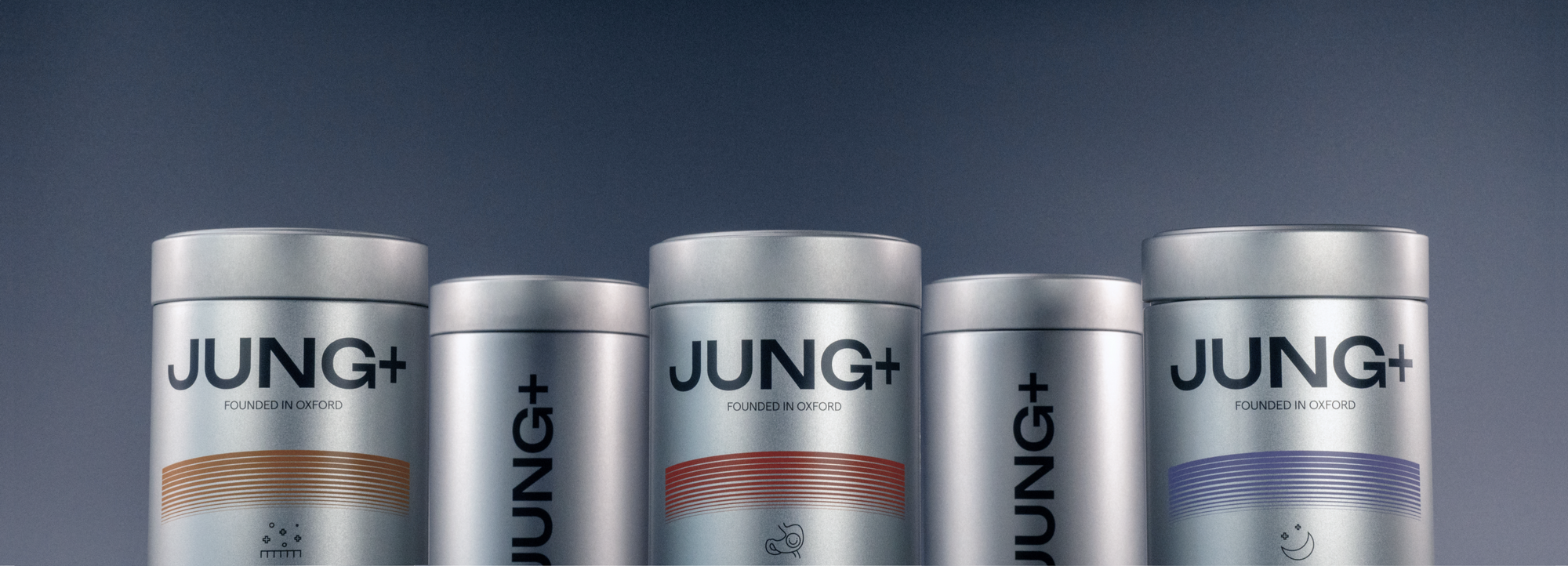"Taurine could be an elixir of life within us that helps us live longer and healthier lives."
Dr. Vijay Yadav, Assistant Professor of Genetics & Development at Columbia University Vagelos College of Physicians and Surgeons

FREE SHIPPING ON ALL SUBSCRIPTIONS!
FREE SHIPPING ON ALL SUBSCRIPTIONS!
FREE SHIPPING ON ALL SUBSCRIPTIONS!
FREE SHIPPING ON ALL SUBSCRIPTIONS!
FREE SHIPPING ON ALL SUBSCRIPTIONS!
FREE SHIPPING ON ALL SUBSCRIPTIONS!
FREE SHIPPING ON ALL SUBSCRIPTIONS!
FREE SHIPPING ON ALL SUBSCRIPTIONS!
FREE SHIPPING ON ALL SUBSCRIPTIONS!
FREE SHIPPING ON ALL SUBSCRIPTIONS!
FREE SHIPPING ON ALL SUBSCRIPTIONS!
FREE SHIPPING ON ALL SUBSCRIPTIONS!
FREE SHIPPING ON ALL SUBSCRIPTIONS!
FREE SHIPPING ON ALL SUBSCRIPTIONS!
FREE SHIPPING ON ALL SUBSCRIPTIONS!
FREE SHIPPING ON ALL SUBSCRIPTIONS!
FREE SHIPPING ON ALL SUBSCRIPTIONS!
FREE SHIPPING ON ALL SUBSCRIPTIONS!
FREE SHIPPING ON ALL SUBSCRIPTIONS!
FREE SHIPPING ON ALL SUBSCRIPTIONS!
FREE SHIPPING ON ALL SUBSCRIPTIONS!
FREE SHIPPING ON ALL SUBSCRIPTIONS!
FREE SHIPPING ON ALL SUBSCRIPTIONS!
FREE SHIPPING ON ALL SUBSCRIPTIONS!
FREE SHIPPING ON ALL SUBSCRIPTIONS!
FREE SHIPPING ON ALL SUBSCRIPTIONS!
FREE SHIPPING ON ALL SUBSCRIPTIONS!
FREE SHIPPING ON ALL SUBSCRIPTIONS!
FREE SHIPPING ON ALL SUBSCRIPTIONS!
FREE SHIPPING ON ALL SUBSCRIPTIONS!
"Taurine could be an elixir of life within us that helps us live longer and healthier lives."
Dr. Vijay Yadav, Assistant Professor of Genetics & Development at Columbia University Vagelos College of Physicians and Surgeons
In the quest for a longer, healthier life, the role of specific nutrients in enhancing vitality and slowing the aging process has garnered immense scientific interest. One nutrient stands out for its comprehensive benefits across multiple physiological systems: taurine. This sulfur-containing amino acid, often hailed as a “longevity nutrient,” plays a pivotal role in supporting cellular health, combating age-related decline, and promoting overall well-being. Let’s dive deep into taurine’s remarkable longevity and health benefits, supported by cutting-edge scientific research.
Recent research has highlighted taurine's potential as a modulator of the aging process. A notable study led by Columbia University found that taurine deficiency is a driver of aging in animals. The researchers observed that taurine levels decrease substantially with age; in humans, 60-year-olds had taurine levels approximately one-third of those found in 5-year-olds. Supplementing taurine in middle-aged animals improved lifespan by up to 12% and enhanced health across various parameters, including bone density, muscle strength, and metabolic function
Aging is an inevitable process, but its pace and impact can be influenced by factors like oxidative stress, mitochondrial dysfunction, and chronic inflammation. Taurine emerges as a key player in mitigating these drivers of aging.
Combatting Cellular Senescence: Research highlights taurine’s ability to reduce cellular senescence, a state where cells lose functionality but fail to die, contributing to aging and inflammation. Studies in rodents and non-human primates have shown that taurine supplementation significantly enhances health span—the years lived in good health—and increases lifespan by up to 10-12% (Singh et al., 2023).
Boosting Mitochondrial Function: As the powerhouse of the cell, mitochondria are central to energy production. With age, mitochondrial efficiency declines, contributing to fatigue and age-related diseases. Taurine has been found to restore mitochondrial function, improving cellular energy metabolism and reducing oxidative stress (Wang et al., 2020).
Reducing Inflammaging: Chronic, low-grade inflammation—termed "inflammaging"—is a hallmark of aging and underpins many degenerative conditions. Taurine supplementation attenuates pro-inflammatory markers, supporting a more youthful immune response (Maleki et al., 2020).
Protecting DNA Integrity: Taurine helps safeguard DNA by neutralizing reactive oxygen species (ROS) and enhancing cellular repair mechanisms. This reduces genetic mutations that contribute to aging and disease progression (Ames, 2018).
Taurine’s benefits extend beyond longevity mechanisms to vital aspects of metabolic health, positioning it as a holistic health enhancer.
Supporting Cardiovascular Health: Taurine improves heart health by regulating blood pressure, lowering LDL cholesterol, and reducing arterial stiffness. A meta-analysis found taurine supplementation lowered systolic blood pressure by an average of 3-4 mmHg, highlighting its potential to support cardiovascular resilience (Waldron et al., 2018).
Enhancing Insulin Sensitivity: By regulating glucose metabolism, taurine enhances insulin sensitivity and supports healthy blood sugar levels. Studies in diabetic models revealed improvements in glucose tolerance and insulin secretion following taurine supplementation (Carneiro et al., 2009).
Optimizing Lipid Profiles: Taurine aids in cholesterol metabolism, reducing LDL cholesterol and triglycerides while increasing HDL cholesterol. These effects collectively lower the risk of atherosclerosis and related cardiovascular diseases (Militante & Lombardini, 2004).
Muscle and physical health are essential for maintaining quality of life as we age. Taurine plays a crucial role in supporting these areas.
Muscle Strength and Function: Taurine supplementation has been shown to preserve muscle strength and improve physical endurance in aging populations. By reducing oxidative stress in muscle cells, it prevents the loss of mobility and independence (Domoto et al., 2024).
Exercise Recovery: Taurine reduces exercise-induced oxidative stress and inflammation, speeding up recovery and minimizing muscle damage (Kurtz et al., 2021).
A restful sleep and a well-regulated circadian rhythm are critical for long-term health. Taurine supports both.
Promoting Better Sleep Quality: Dietary taurine intake has been positively associated with improved sleep quality in human studies. It enhances the ability to fall asleep faster and reduces morning grogginess (Ha et al., 2015).
Balancing Circadian Rhythms: In metabolic stress conditions, taurine supplementation restores disrupted circadian rhythms. It regulates critical clock genes like Bmal1 and Per1, contributing to improved daily energy cycles (Figueroa et al., 2016).
Neurocalming Properties: Taurine interacts with GABAergic pathways in the brain, promoting relaxation and preparing the body for restful sleep. Its role in modulating nervous system activity makes it a promising aid for those struggling with restlessness or poor sleep quality (Ferko & Emil, 1988).
A groundbreaking study conducted by researchers at Columbia University, titled "Taurine deficiency as a driver of aging," was published in Science on June 8, 2023. The research involved a comprehensive analysis of taurine levels across various species, including humans, and examined the effects of taurine supplementation on health and lifespan in animal models. The findings suggest that restoring taurine levels in older age may be a promising strategy to delay aging and improve health
Taurine is not just another amino acid; it’s a powerhouse nutrient that supports longevity, bolsters metabolic health, enhances physical vitality, and promotes restorative sleep. By addressing the fundamental mechanisms of aging, such as oxidative stress, mitochondrial function, and inflammation, taurine emerges as a versatile ally in the journey toward a longer, healthier life.
While its benefits are profound, ongoing research continues to unravel taurine’s full potential. As we learn more, taurine could redefine how we approach aging and overall health, making it a cornerstone in longevity-focused wellness.

Researchers explored the age-related decline in taurine levels across multiple species, including humans, and its potential role as a driver of aging. Supplementation reversed the decline and led to improvements in healthspan markers like bone and muscle strength, immune system function, and reduced cellular senescence. In mice, lifespan increased by 10-12%, while monkeys demonstrated significant enhancements in overall health metrics. This groundbreaking research identifies taurine as a promising candidate for anti-aging interventions. Published in Science (2023), titled “Taurine Deficiency as a Driver of Aging,” conducted by Singh et al.
Over an 8-year longitudinal study, researchers investigated taurine’s impact on physical fitness among middle-aged and older Japanese adults. They found that higher taurine intake significantly preserved knee extension muscle strength, reducing age-related declines in physical performance. These findings underscore taurine's importance in maintaining mobility and reducing frailty in aging populations. Published in Frontiers in Nutrition (2024), titled “Association of Taurine Intake with Changes in Physical Fitness Among Community-Dwelling Middle-Aged and Older Japanese Adults,” conducted by Domoto et al.
This research explored taurine’s role in regulating disrupted circadian rhythms caused by high-fat diets in mice. Taurine supplementation normalized the expression of core clock genes, including those responsible for insulin and leptin regulation, key hormones tied to metabolic and sleep-wake cycles. These results highlight taurine’s potential in synchronizing biological processes with the day-night cycle, promoting consistent and restorative sleep patterns. Published in Chronobiology International (2016), titled “Taurine Treatment Modulates Circadian Rhythms in Mice Fed a High-Fat Diet,” conducted by Figueroa et al.
This study investigated the relationship between dietary taurine intake and sleep quality in a large-scale survey. It was observed that individuals with higher taurine consumption experienced better sleep quality, as taurine interacts with GABAergic systems in the brain to promote relaxation and faster sleep onset. These findings suggest taurine’s potential as a natural supplement for improving sleep and overall well-being. Published in Nutrition Research and Practice (2015), titled “The Association Among Dietary Taurine Intake, Obesity, and Sleep Quality,” conducted by Ha et al.
1000 mg
per day
~3.3
cans of canned tuna
Taurine is most abundantly found in shellfish like scallops and mussels, as well as in certain fish such as tuna, offering some of the highest natural concentrations of this amino acid.


Taurine is a key component in our Advanced Sleep Repair formula, chosen for its proven benefits in promoting restful sleep, regulating circadian rhythms, and enhancing cellular resilience. Delivered at the clinical dose of 1000 mg, Taurine supports optimal recovery, relaxation, and longevity-focused sleep repair, making Advanced Sleep Repair a cornerstone in your nightly wellness routine.










Taurine is a sulfur-containing amino acid involved in vital physiological processes, including cellular protection, antioxidant activity, and inflammation regulation, earning its reputation as a "longevity amino acid" due to its role in promoting health span and longevity.
Yes, taurine is naturally synthesized in the body, primarily in the liver and brain, but its production decreases with age, which is why dietary sources or supplements can be beneficial.
Taurine supports mitochondrial health, helping cells efficiently produce energy while reducing oxidative stress, which can improve physical and mental stamina.
Yes, taurine has been shown to reduce muscle fatigue, enhance endurance, and speed up recovery, making it a popular addition to sports and recovery supplements.
Taurine is generally safe for daily consumption within recommended doses (500-3000 mg per day). Side effects are rare and typically occur with excessive intake.
Research suggests taurine may have neuroprotective properties, supporting brain health by reducing oxidative stress and potentially improving memory and focus.
Taurine interacts with the GABAergic system in the brain, promoting relaxation and reducing stress, which may indirectly support mental well-being.
Ames, B. (2018). Prolonging healthy aging: Longevity vitamins and proteins. Proceedings of the National Academy of Sciences, 115, 10836-10844.
Bae, M., Ahmed, K., & Yim, J. (2022). Beneficial effects of taurine on metabolic parameters in animals and humans. Journal of Obesity & Metabolic Syndrome, 31, 134-146.
Bing, O. H. L. (2008). Effect of taurine on learning and memory in rats after sleep deprivation. Acta Pharmacologica Sinica, 29(2), 98-106.
Domoto, T., Kise, K., Oyama, Y., Furuya, K., Kato, Y., Nishita, Y., Kozakai, R., & Otsuka, R. (2024). Association of taurine intake with changes in physical fitness among community-dwelling middle-aged and older Japanese adults: An 8-year longitudinal study. Frontiers in Nutrition, 11.
Figueroa, A., & Figueiredo, H. F. (2016). Taurine treatment modulates circadian rhythms in mice fed a high-fat diet. Chronobiology International, 33(2), 162-175.
Guan, L., & Miao, P. (2020). The effects of taurine supplementation on obesity, blood pressure, and lipid profile: A meta-analysis of randomized controlled trials. European Journal of Pharmacology, 173533.
Ha, M., Kim, J., & Kim, M. (2015). The association among dietary taurine intake, obesity, and sleep quality. Nutrition Research and Practice, 9(2), 146-151.
Katakawa, M., Fukuda, N., Tsunemi, A., Mori, M., Maruyama, T., Matsumoto, T., Abe, M., & Yamori, Y. (2016). Taurine and magnesium supplementation enhances the function of endothelial progenitor cells through antioxidation in healthy men and spontaneously hypertensive rats. Hypertension Research, 39, 848-856.
Maleki, V., Mahdavi, R., & Hassanzadeh, J. (2020). The effects of taurine supplementation on oxidative stress and inflammation: A systematic review. Clinical Nutrition ESPEN, 36, 1-7.
McGaunn, J., & Baur, J. (2023). Taurine linked with healthy aging. Science, 380, 1010-1011.
Militante, J. D., & Lombardini, J. (2004). Dietary taurine supplementation: Hypolipidemic and antiatherogenic effects. Nutrition Research, 24, 787-801.

Build your stack, today
Tell us about yourself and your goals. We'll use your answers to determine your baseline and build your recommendations.